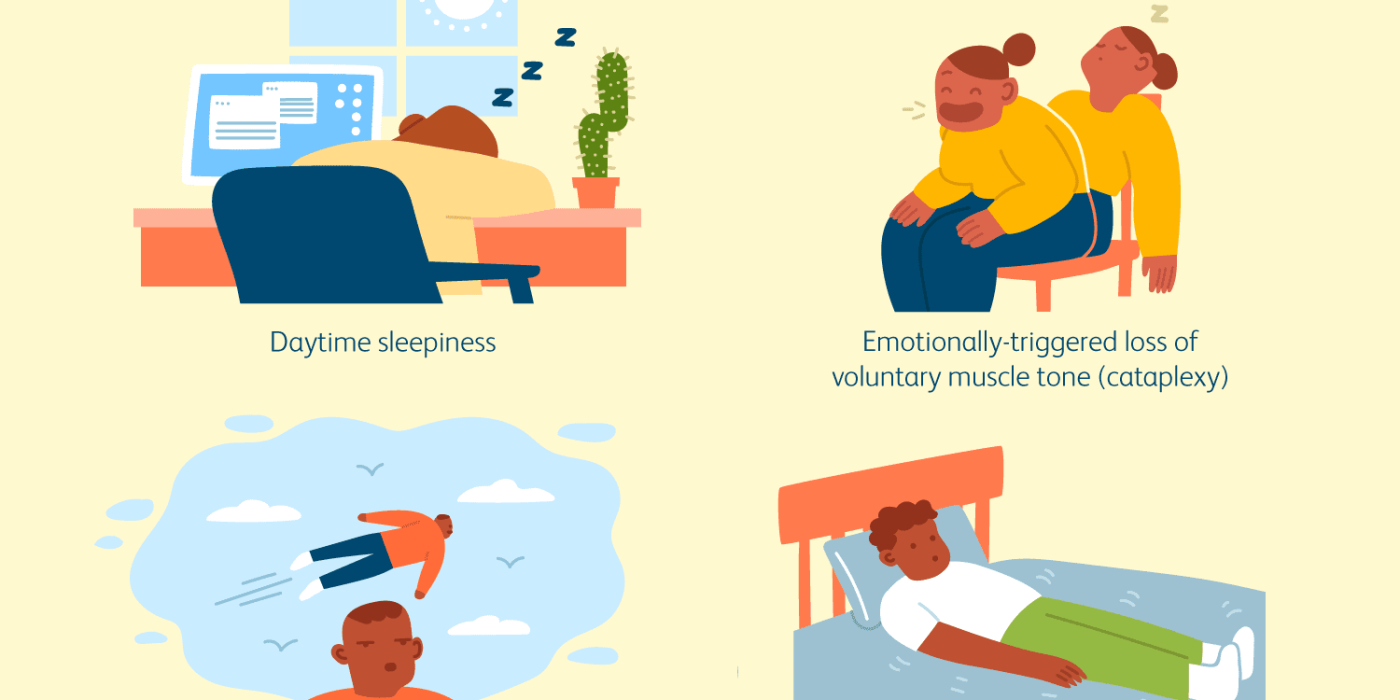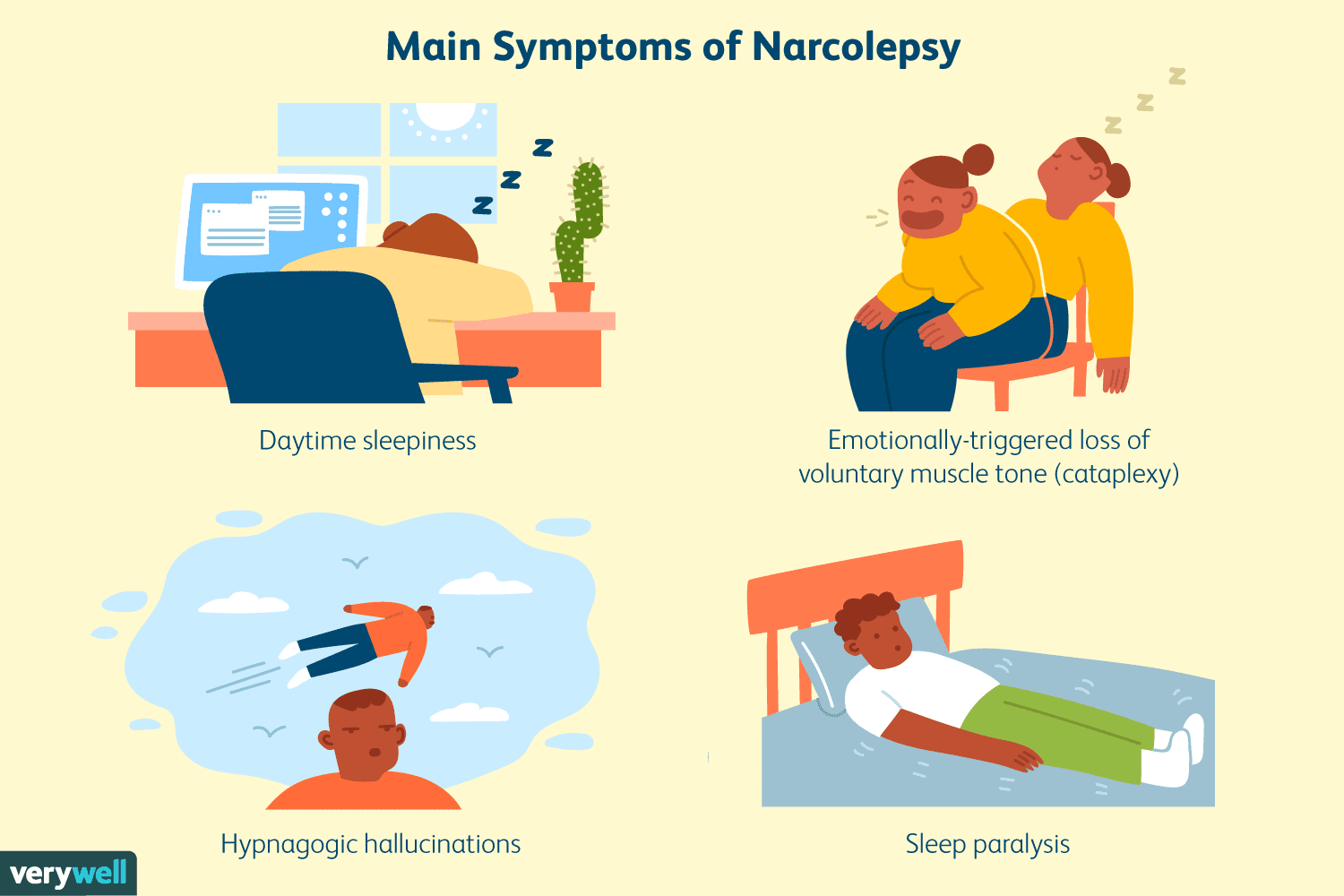Living with narcolepsy can be a constant challenge, as it affects daily life in numerous ways. From unexpected sleep attacks to difficulty staying awake, narcolepsy can disrupt even the simplest of tasks. So, how does narcolepsy affect daily life? Let’s dive in and explore the impact this neurological disorder has on those who live with it.
Narcolepsy, a condition characterized by excessive daytime sleepiness, can turn even the most mundane activities into a battle against drowsiness. Imagine trying to focus on a work assignment or engage in a lively conversation, only to feel a sudden wave of exhaustion wash over you. It’s like trying to walk against a strong current, constantly fighting to stay awake. These unexpected sleep attacks can happen at any time, making it challenging to maintain a regular routine. Whether it’s struggling to stay awake during a meeting or feeling the urge to doze off while driving, narcolepsy can pose serious risks to daily activities.
Understanding Narcolepsy and Its Impact on Daily Life
Narcolepsy is a neurological sleep disorder that affects the brain’s ability to regulate sleep-wake cycles. It is characterized by excessive daytime sleepiness, sleep attacks, and sudden loss of muscle control, known as cataplexy. Living with narcolepsy can have a significant impact on daily life, affecting various aspects of a person’s routine and overall well-being.
The Challenges of Excessive Daytime Sleepiness
Excessive daytime sleepiness (EDS) is one of the key symptoms of narcolepsy. People with narcolepsy often struggle to stay awake during the day, regardless of the amount of sleep they get at night. This constant feeling of fatigue can make it difficult to concentrate, stay focused, and perform well in academic or professional settings. It can also affect personal relationships and daily activities, as individuals may feel too tired to engage in social events or participate in hobbies they once enjoyed.
Furthermore, EDS can pose safety risks, especially when driving or operating heavy machinery. The unpredictable nature of narcolepsy symptoms, such as sudden sleep attacks, increases the likelihood of accidents and injuries. Managing EDS requires careful planning, strategic napping, and the use of medication to promote wakefulness.
The Impact of Cataplexy on Emotional Well-being
Cataplexy, another hallmark symptom of narcolepsy, involves sudden muscle weakness or paralysis triggered by strong emotions, such as laughter, anger, or surprise. These episodes can be brief or prolonged, and they can significantly impact emotional well-being. Individuals with cataplexy often have to avoid situations or activities that may trigger these episodes, leading to a sense of restriction and isolation.
The fear of experiencing cataplexy can also cause anxiety and emotional distress, as individuals may become hyperaware of their emotions and constantly monitor their reactions. This heightened emotional vigilance can disrupt daily life, affecting relationships, work performance, and overall quality of life. Managing cataplexy often involves a combination of medication and therapy to help individuals cope with their emotions and reduce the frequency and severity of episodes.
The Struggles with Sleep Fragmentation
In addition to EDS and cataplexy, individuals with narcolepsy often experience fragmented sleep. They may have difficulty maintaining a consistent sleep schedule and may wake up frequently throughout the night. This disrupted sleep pattern can lead to chronic sleep deprivation, exacerbating the symptoms of narcolepsy and further impacting daily life.
Sleep fragmentation can result in decreased cognitive function, impaired memory and concentration, and difficulties with problem-solving and decision-making. It can also contribute to mood disturbances, such as irritability, anxiety, and depression. Establishing a regular sleep routine, creating a comfortable sleep environment, and practicing good sleep hygiene are essential for managing sleep fragmentation and improving overall sleep quality.
Strategies for Managing Narcolepsy Symptoms
1. Medication: Various medications, such as stimulants and antidepressants, are prescribed to manage narcolepsy symptoms. These medications can help promote wakefulness, reduce cataplexy episodes, and improve overall sleep quality.
2. Napping: Strategic napping throughout the day can help combat excessive daytime sleepiness and improve alertness. Short, scheduled naps can provide temporary relief and boost energy levels.
3. Lifestyle adjustments: Establishing a consistent sleep schedule, maintaining a healthy diet, and engaging in regular exercise can contribute to better overall sleep quality and daytime wakefulness.
4. Support network: Building a support network of understanding family members, friends, and healthcare professionals can provide emotional support and practical assistance in managing narcolepsy.
5. Education and awareness: Increasing awareness and understanding about narcolepsy can help reduce stigma and promote acceptance and support for individuals living with the condition.
Conclusion
Living with narcolepsy can present numerous challenges, from excessive daytime sleepiness and cataplexy to sleep fragmentation. However, with proper management strategies and support, individuals with narcolepsy can lead fulfilling lives and overcome the obstacles associated with this sleep disorder. By understanding the impact of narcolepsy on daily life and implementing effective coping mechanisms, individuals can navigate the challenges and embrace a balanced lifestyle.
Key Takeaways: How does narcolepsy affect daily life?
- Narcolepsy can cause excessive daytime sleepiness, making it difficult to stay awake and alert throughout the day.
- Narcolepsy can lead to sudden and uncontrollable sleep attacks, which can happen at any time and in any situation.
- People with narcolepsy may experience cataplexy, a sudden loss of muscle tone triggered by strong emotions.
- Narcolepsy can impact daily activities such as driving, working, and socializing due to the unpredictable nature of symptoms.
- With proper management and treatment, individuals with narcolepsy can lead fulfilling lives and minimize the impact on daily activities.
Frequently Asked Questions
Narcolepsy is a neurological disorder that affects the brain’s ability to regulate sleep-wake cycles. It can have a significant impact on daily life, affecting various aspects such as work, social interactions, and overall well-being. Here are some common questions about how narcolepsy affects daily life:
1. How does narcolepsy impact work or school?
Narcolepsy can make it challenging to maintain consistent productivity at work or school. Excessive daytime sleepiness, sudden sleep attacks, and difficulty concentrating can all interfere with daily tasks and responsibilities. Individuals with narcolepsy may struggle to stay awake during meetings or lectures, affecting their ability to retain information. It is important for individuals with narcolepsy to communicate with their employers or teachers about their condition and explore accommodations that can support their performance. This may include flexible work or school schedules, designated nap times, or the use of assistive devices like alarms or reminder apps.
Coping strategies such as practicing good sleep hygiene, maintaining a regular sleep schedule, and taking short naps during breaks can help manage symptoms and improve overall functioning in work or school settings.
2. How does narcolepsy affect social interactions?
Narcolepsy can have a significant impact on social interactions. Excessive daytime sleepiness can make it difficult to stay awake during social activities or conversations, causing individuals with narcolepsy to feel left out or isolated. The unpredictable nature of narcolepsy symptoms, such as sudden sleep attacks or cataplexy (sudden loss of muscle tone), can also lead to embarrassment or self-consciousness.
It is important for individuals with narcolepsy to educate their friends, family, and loved ones about the condition to foster understanding and support. Establishing open communication and setting realistic expectations can help manage social challenges. Planning social activities during times when symptoms are less severe, taking short naps before social events, and avoiding alcohol or other triggers can also help minimize the impact of narcolepsy on social interactions.
3. Can narcolepsy affect mental health?
Narcolepsy can have an impact on mental health. The chronic sleep deprivation caused by excessive daytime sleepiness can contribute to mood disorders such as depression and anxiety. The challenges and limitations imposed by narcolepsy can also lead to feelings of frustration, low self-esteem, and decreased quality of life.
It is essential for individuals with narcolepsy to seek support from healthcare professionals who can provide guidance and treatment for both the physical and emotional aspects of the condition. This may involve a combination of medication, therapy, and lifestyle modifications to manage symptoms, improve mood, and enhance overall well-being.
4. How does narcolepsy affect driving and safety?
Narcolepsy can pose significant risks when it comes to driving and overall safety. Excessive daytime sleepiness and sudden sleep attacks can make it dangerous for individuals with narcolepsy to operate vehicles or machinery. Falling asleep at the wheel can lead to accidents and injury, not only for the affected individual but also for others on the road.
It is crucial for individuals with narcolepsy to prioritize safety and take precautions to prevent accidents. This may include avoiding driving during periods of extreme sleepiness, pulling over and taking a nap if necessary, or relying on alternative transportation methods when feeling tired. It is important to follow the advice of healthcare professionals and adhere to any restrictions or guidelines regarding driving and safety.
5. How can narcolepsy be managed to improve daily life?
Although narcolepsy is a chronic condition, there are various strategies and treatments available to manage symptoms and improve daily life. Medications, such as stimulants and antidepressants, can help regulate sleep-wake cycles and reduce excessive daytime sleepiness. Lifestyle modifications, such as maintaining a regular sleep schedule, practicing good sleep hygiene, and engaging in regular exercise, can also contribute to symptom management.
Additionally, individuals with narcolepsy can benefit from support groups, counseling, and education about the condition. Learning coping strategies, such as taking short naps, practicing stress management techniques, and avoiding triggers, can help individuals with narcolepsy lead fulfilling lives despite the challenges posed by the disorder.
Final Summary: How Narcolepsy Affects Daily Life
Living with narcolepsy can have a significant impact on a person’s daily life. From unpredictable sleep attacks to difficulties in maintaining focus, narcolepsy presents unique challenges that can be both frustrating and disruptive. However, with proper management and support, individuals with narcolepsy can still lead fulfilling lives.
One of the most challenging aspects of narcolepsy is the sudden and uncontrollable sleep attacks that can occur at any time. Imagine trying to go about your day, only to be overcome with an overwhelming urge to sleep. These episodes can happen during work, social activities, or even while driving, posing significant safety risks. Managing narcolepsy often involves finding strategies to stay awake and alert, such as taking scheduled naps or practicing good sleep hygiene.
In addition to the physical symptoms, narcolepsy can also affect a person’s emotional well-being. The constant struggle to stay awake and the potential embarrassment of falling asleep in public can lead to feelings of frustration, anxiety, and even depression. It’s essential for individuals with narcolepsy to seek emotional support and surround themselves with understanding friends, family, and healthcare professionals who can provide the necessary guidance and empathy.
While living with narcolepsy can be challenging, it’s important to remember that it doesn’t define a person’s entire existence. With proper treatment, lifestyle adjustments, and a supportive network, individuals with narcolepsy can navigate their daily lives with resilience and determination. By prioritizing self-care, seeking professional help, and educating others about narcolepsy, we can create a more inclusive and understanding society for those living with this condition.




